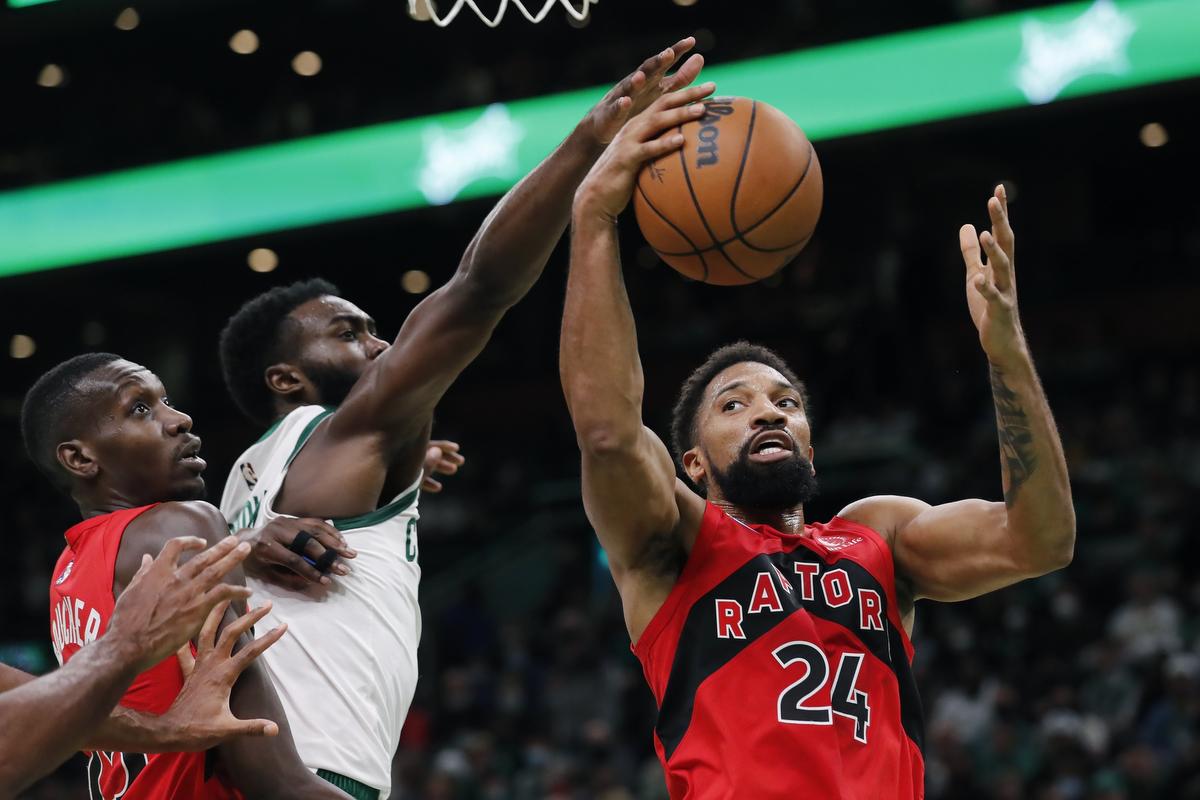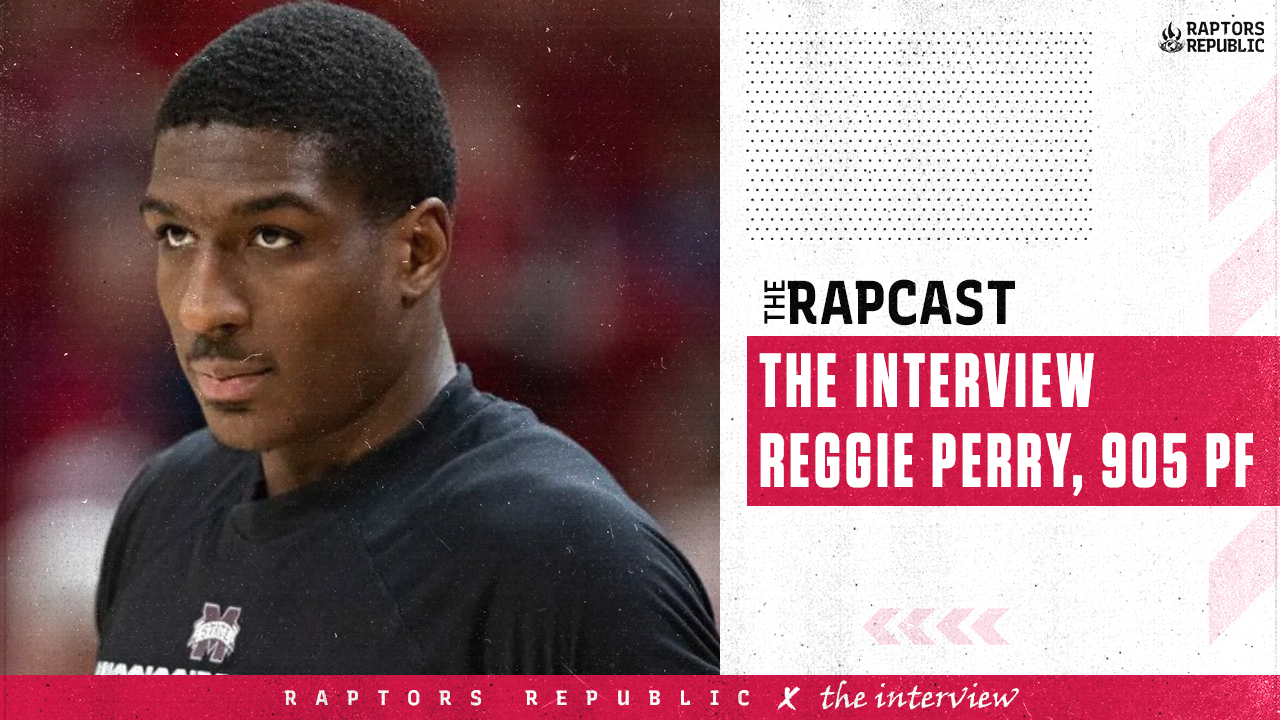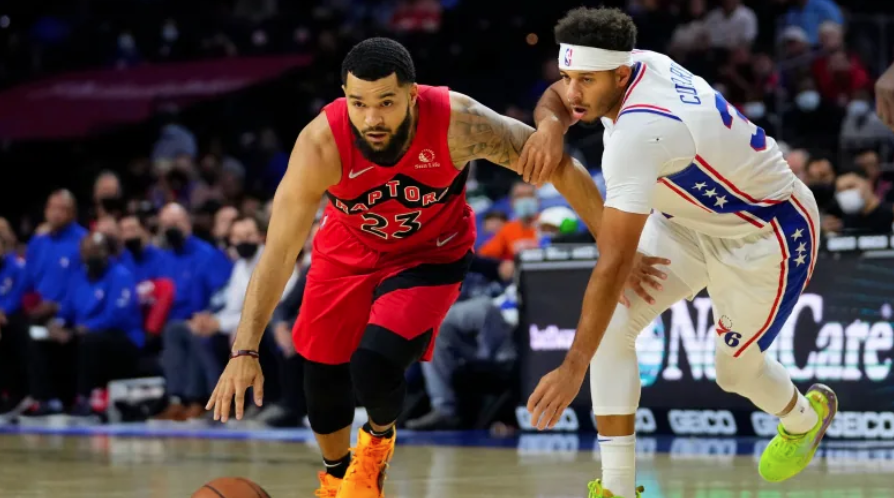It was partially tongue-in-cheek last year when I wrote that Khem Birch’s impact was “deafening.” He was an important member of Toronto’s brief resurgence late last season before injuries and rest decimated the team’s chances at climbing the standings. But single-digit points and rebounds are rare per-game averages for the most impactful players. I came into the year pleased that Birch would be Toronto’s presumptive starter, confident in his ability to play winning basketball.
It’s possible that I underrated him. It’s possible that even calling his impact deafening is underrating him. After all, what’s a better mark of value than the fact that a team’s quality of play collapses without you there to hold it up?
Let’s go over some numbers. The Raptors were 6-4 with Birch in the lineup (6-3 if you exclude the opener, when he was still hampered by injury and clearly not himself.) Then Birch is out with knee swelling, and Toronto is outrebounded by 13 by the Brooklyn Nets while allowing the Nets to shoot 88 percent at the rim. Then Toronto plays a reeling Boston Celtics and is again outrebounded. The Raptors managed just 14 offensive rebounds in the two games without Birch after averaging 13.7 per game prior.
As if last season didn’t teach the Raptors the lesson, Boston drilled into their skulls that it’s nice to have a positionally sound center on the defensive end. Not just nice. Necessary. Scottie Barnes did his best at guarding Robert Williams, but it’s likely that he’s never had to guard a player as massive and athletic in his life. Guarding someone like Williams for the first time — and out of position, to boot! — would be nearly impossible to learn on the fly.
And so Toronto felt his mistakes. When Barnes when to contest shots as the helper, Williams was there to grab offensive rebounds. (That’s not Barnes’ fault, obviously, and Gary Trent jr. in particular was guilty a few times of failing to crack down into the paint to help.) But Barnes failed at times to block out and simply lost jumping contests with the much larger player. Once he got caught coming up too high to defend the pick and roll, and Williams slipped to the rim at full force, catching the lob with Barnes running into his back for the foul.
“What really hurt us was the offensive rebounding,” said Nick Nurse after the game. “They got 12 [offensive rebounds], let me see what the second-chance points are — it has to be a big number. Twenty-one. That’s the game right there.”
Nurse admitted after the game that Barnes had a tough assignment, and at halftime the coaching staff showed him video clips of the defensive glass.
These are lessons that Barnes needs to learn, particularly if he’s going to play alongside Pascal Siakam and OG Anunoby without a center in tow. Games like this are important for Barnes’ long-term development, even if they’re ugly to watch in the short term. This was Toronto’s version of throwing your kid in the water to teach them how to swim.
On the other end, Toronto’s isolation- and post-heavy halfcourt sets did little to force Boston’s defender into difficult choices. Anunoby was lackadaisical with the ball, turning it over or missing fadeaways in the post. Siakam frequently stood in the corner and didn’t impact offensive possessions. Barnes was Toronto’s best offensive player, cutting well, passing well, and even scoring in the post with a fair amount of ease. But regardless of his success, Toronto lacked a player who could eat space and help his teammates do stuff a little bit easier. You know who would help with that? Exactly what the defense needed: a positionally sound center.
All this to say: The Raptors miss Birch like Juliet missed Romeo. His positional awareness and defensive tools would have gone a long way to protecting the rim for Toronto and keeping the Celtics off the glass. His screen-setting and quick decision-making would have helped Toronto scrounge a few more high-quality looks on the offensive end. But he’s likely to be out for at least a few more games with knee swelling, and Toronto needs to make do without him.
“We miss him a lot,” said Anunoby after the game, always to the point.
At halftime, the Raptors moved Anunoby onto Williams, letting Barnes slide back onto the perimeter, where he could wreak more havoc without being overexposed. The change worked magic in solving Toronto’s issues, as the communication errors and lack of turnover-creation that plagued the first half seemed magically solved in the second. Toronto actually broke even in the second half, despite their offensive struggles.
“We probably should have switched that a little sooner,” said Nurse of putting Anunoby onto Williams rather than Barnes. “I think it had a good effect in the second half. I think we did a better job on Williams on the glass in the second half — felt like it anyway because it felt pretty bad in the first half.”
But even holding Boston to 42 points in the second half was not enough. We know how the Raptors win games. They need to grind it out on the defensive end, force a ton of turnovers, score in transition, and amass a hugely positive differential when it comes to shooting possessions. We knew all that in preseason. It’s possible that the Raptors can’t play that way without Birch. They can’t get enough stops, enough turnovers, enough rebounds. He doesn’t do what Fred VanVleet does, what Anunoby does, what Barnes does. But the incredible things they do aren’t really possible unless someone is doing what Birch does. And it’s possible that he’s the only one on this team who can.
Right now, Birch has the best on/off net rating on the entire team. (By a mile.) Who says he doesn’t put up numbers?
His success — and just as importantly, the team’s lack of it without him — asks a few interesting questions. On one hand, what is value? If Birch is the lodestone that unlocks what is a great team with everyone available, then why shouldn’t he be considered to be correspondingly valuable, his counting stats be damned? On the other hand, if the team is so reliant on Khem Birch — with no one else on the roster able to simulate his contributions — then are the Raptors really such a great team after all?



